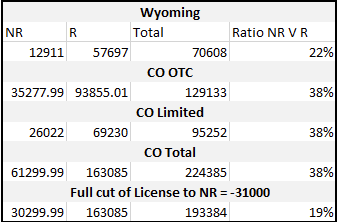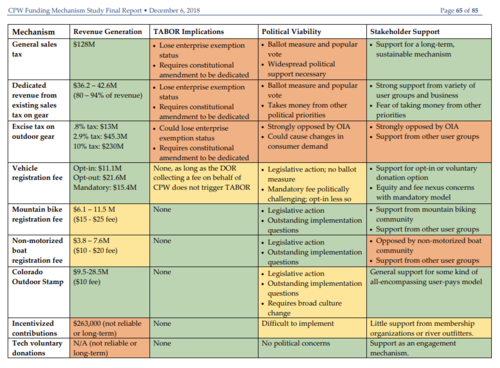rideold
Well-known member
Because of the margin of error. When you aggregate data into larger geographic areas the error is spread across more data and has less influence. When you start looking at smaller and smaller geographic areas the error increases.I'm confused why you cant trust unit based data if you can trust a wider based ? Data. I think that's what you are saying. And PLO are all based on a single unit whether they are unit wide or actual private land tags









